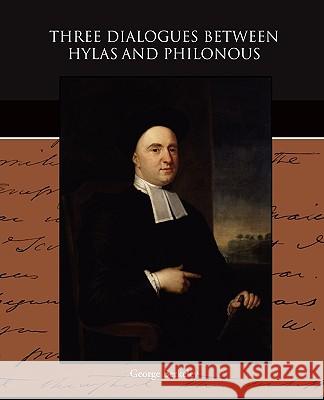Three Dialogues between Hylas and Philonous » książka
Three Dialogues between Hylas and Philonous
ISBN-13: 9781438527710 / Angielski / Miękka / 2009 / 140 str.
Three Dialogues between Hylas and Philonous
ISBN-13: 9781438527710 / Angielski / Miękka / 2009 / 140 str.
(netto: 69,48 VAT: 5%)
Najniższa cena z 30 dni: 72,56 zł
ok. 16-18 dni roboczych
Bez gwarancji dostawy przed świętami
Darmowa dostawa!
George Berkeley also known as Bishop Berkeley was an 18th century philosopher. His theory of "immaterialism" was later referred to as subjective idealism. This theory, summed up in his dictum, "Esse est percipi," states that individuals can only directly know sensation and ideas of objects not abstractions such as matter. Berkeley wrote A Treatise Concerning the Principles of Human Knowledge (1710) and Three Dialogues between Hylas and Philonous (1713). Berkeley used the characters of Philonous and Hylas to represent himself and John Locke. Three important concepts discussed in the Three Dialogues are perceptual relativity, the conceivability/master argument, and Berkeley's phenomenalism.
George Berkeley also known as Bishop Berkeley was an 18th century philosopher. His theory of "immaterialism" was later referred to as subjective idealism. This theory, summed up in his dictum, "Esse est percipi", states that individuals can only directly know sensation and ideas of objects not abstractions such as matter. Berkeley wrote A Treatise Concerning the Principles of Human Knowledge (1710) and Three Dialogues between Hylas and Philonous (1713). Berkeley used the characters of Philonous and Hylas to represent himself and John Locke. Three important concepts discussed in the Three Dialogues are perceptual relativity, the conceivability/master argument, and Berkeleys phenomenalism.











